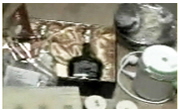본 논문은 헤겔 『법철학』의 ‘추상법’ 장의 ‘불법’ 편에서 나타난 불법 개념에 대한 사변적 규정을 해명하고 이에 함축되어 있는 의미를 해명하는 데에 그 목적이 있다. 이를 위해 먼...
http://chineseinput.net/에서 pinyin(병음)방식으로 중국어를 변환할 수 있습니다.
변환된 중국어를 복사하여 사용하시면 됩니다.
- 中文 을 입력하시려면 zhongwen을 입력하시고 space를누르시면됩니다.
- 北京 을 입력하시려면 beijing을 입력하시고 space를 누르시면 됩니다.

헤겔 『법철학』에서 불법 개념에 대한 사변적 규정 = The speculative definitions of the concept “Wrong” in Hegel’s Philosophy of Right
한글로보기부가정보
국문 초록 (Abstract)
본 논문은 헤겔 『법철학』의 ‘추상법’ 장의 ‘불법’ 편에서 나타난 불법 개념에 대한 사변적 규정을 해명하고 이에 함축되어 있는 의미를 해명하는 데에 그 목적이 있다. 이를 위해 먼저, 불법의 세 양상인 범의 없는 불법, 사기, 범죄를 이들 각각에 함축되어 있는 판단의 유형에 대한 분석을 통해 민사적 불법과 형사적 불법으로 분류하여 해명하였고, 다음으로, 이를 바탕으로 불법 이론이 『법철학』에서 차지하는 체계적 의미와, 추상법의 한계인 불법의 필연성의 근거를 해명하였다. 먼저, 불법의 세 양상에 대한 사변적 규정은 다음과 같다. 첫째, 범의 없는 불법은 하나의 물건에 대해 여러 인격이 자신의 소유물로 주장하는 데에서 비롯되는 권리의 충돌로서 민사적 불법의 영역을 형성한다. 이 양상에는 단적인 부정 판단이 함축되어 있는데, 이에 따라 범의 없는 불법에서는 물건에 대한 특정한 인격의 소유권만이 부정될 뿐 보편자로서의 소유권 일반은 부정되지 않는다. 둘째, 사기는 일방의 계약 당사자가 교환될 물건의 가치를 속임으로써 상대방이 등가 교환의 계약을 체결하는 것으로 믿게 만드는 기만행위로서 형사적 불법의 한 영역을 형성한다. 사기에는 동일 판단이 함축되어 있는데, 이에 따라 사기에서는 교환될 물건의 보편적인 내용인 가치의 동등성은 은폐된 채 계약 당사자가 상대방의 소유권을 형식적으로 인정한다는 사실만이 함축되어 있다. 셋째, 형사적 불법의 가장 본질적인 영역인 범죄와 그 지양으로서의 형벌은 강제 개념에서 도출되는데, 범죄는 제1의 강제로, 형벌은 제2의 강제로 규정된다. 제1의 강제로서의 범죄에는 부정적 무한 판단이 함축되어 있는데, 이에 따라 범죄에서는 특정한 인격의 소유권만 부정되는 게 아니라 보편적 소유권인 법으로서의 법도 부정된다. 한편 헤겔의 형법 이론의 고유한 점은 범죄와 형벌을 공리성의 관점에서가 아니라 오직 정의의 관점에서 본다는 데에 있다. 다음으로, 불법 이론이 『법철학』에서 차지하는 체계적 의미와 불법의 필연성의 근거에 대한 고찰에서 해명된 사실은 다음과 같다. 불법 이론은 추상법의 한계를 사변적으로 해명할 뿐만 아니라 추상법에서 벗어나 인륜성으로 이행할 필요를 촉구한다는 데에 그 체계적 의미가 있다. 그리고 추상법이 불법으로 귀결될 필연성은 특수 의지의 한계에 그 주관적 측면의 근거가 있으며, 이보다 더 본질적인 근거인 객관적 측면의 근거는 추상법에는 권리의 분쟁 해결과 사회의 보편적인 질서의 유지를 위해 필수불가결한, 인륜적 공동체의 제도와 조직 및 실정법적 체계가 결여되어 있다는 데에 있다.
다국어 초록 (Multilingual Abstract)
The purpose of this paper is to clarify the speculative definitions of the concept of Wrong in the ‘Wrong’ section of the ‘Abstract Right’ chapter of Hegel’s Philosophy of Right and to elucidate its implications. To this end, I first clarifi...
The purpose of this paper is to clarify the speculative definitions of the concept of Wrong in the ‘Wrong’ section of the ‘Abstract Right’ chapter of Hegel’s Philosophy of Right and to elucidate its implications. To this end, I first clarified the three modalities of Wrong, namely Unintentional Wrong, Fraud, and Crime, by classifying them into Civil Wrong and Criminal Wrong through analysis of the type of judgment implied in each of them. Next, based on this, I elucidated the systematic implications of Wrong Theory in the Philosophy of Right and the bases for the inevitability of Wrong, which is a limitation of Abstract Right. First, the speculative definitions on the three modalities of Wrong are as follows. Unintentional Wrong is a conflict of rights resulting from multiple persons claiming a single object as their own property, and falls within the realm of Civil Wrong. This modality implies the simple negative judgment, and accordingly, in the Unintentional Wrong only a specific person’s ownership of an object is denied, and the general ownership as a universal is not denied. Fraud is an act of deception in which one party to a contract makes the other party believe that he or she is entering into a contract of equivalent exchange by deceiving the value of the goods to be exchanged, and falls within an area of Criminal Wrong. Fraud implies the judgment of identity, and thus in Fraud the equality of value, which is the universal content of the goods to be exchanged, is concealed and only the fact that the contracting party formally recognizes the ownership of the other party is implied. Crime, the most essential area of Criminal Wrong, and punishment as its sublation, are derived from the concept of Coercion, and accordingly, crime is defined as the first Coercion and punishment as the second Coercion. Crime as the first Coercion implies negative infinite judgment, and accordingly, in Crime not only ownership of a specific person is denied, but also the law as law as a universal ownership is denied. Meanwhile, the unique point of Hegel’s theory of criminal law is that it views crime and punishment only from the perspective of justice, not from the perspective of utility. Next, the facts elucidated in the consideration of the systematic implications of Wrong Theory in Philosophy of Right and the bases for the inevitability of Wrong are as follows. The Wrong Theory has the systematic implications in that it not only speculatively clarifies the limitations of Abstract Right, but also urges the need to move away from Abstract Right and move toward the Ethical Life. And the subjective basis for the inevitability that Abstract Right will result in Wrong lies in the limitation of Special Will, and the objective basis, which is more essential than this, is that Abstract Right lacks the system, organization, and positive legal system of the ethical community, which is indispensable for resolving conflicts of rights and maintaining the universal order of society.
동일학술지(권/호) 다른 논문
-
- 한국헤겔학회
- Christian Spahn
- 2024
- KCI등재
-
- 한국헤겔학회
- 이정일
- 2024
- KCI등재
-
라인홀트의 표상능력이론의 형성지세와 그 이론적 기초 I
- 한국헤겔학회
- 김윤상
- 2024
- KCI등재
-
피히테 철학에서 신체를 통한 현상계의 구성- 『새로운 방법에 의한 학론』의 인간학적 기초에 관한 연구
- 한국헤겔학회
- 권기환
- 2024
- KCI등재




 KCI
KCI KISS
KISS






